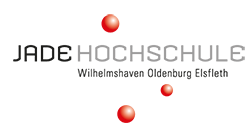Maritime English Language Training Standards (MariLANG)
| Project co-ordinator | Peter John |
| Duration | 36 months (September 2015 to August 2018) |
| Funding | 446.175,00 € |
| Funded by | Erasmus+ |
| Project partners | Dr. Martin Ziarati, Prof. Dr. Reza Ziarati, Capt. Himadri Lahiry Centre for Factories of the Future, ltd. Jennie Kallergi, Moschoula Apostolou 1st Evening Vocational Senior High School of Egaleo Tomaž Gregorič, Gregor Jeretič, Saša Ivančič Spinaker d.o.o. Assoc. Prof. Nikolai Velikov, Prof. Sonya Toncheva, Daniela Zlateva Nikola Yonkov Vaptsarov Naval Academy Alison Noble, Pieter Decancq Hogere Zeevaartschool Antwerpen Carolyn Westbrook Southampton Solent University |
Project Objectives
The shipping industry is a key component of the global economy, carrying nearly 90% of world trade. The industry is regulated by the International Maritime Organisation (IMO), the UN specialised agency for maritime affairs. IMO is aware that over 80% of the reported accidents and incidents at sea and in ports are due to human errors (IMO, 2012, Horner, 2014) and over 30% of these accidents are due to linguistic and communications mistakes (Ziarati, 2006, Trekner, 2010).
Language and communication are fundamental elements of the shipping sector, especially with Maritime English being the language of the sea. The IMO approved the newly revised Model Course 3.17 for Maritime English in January 2015. This will lead to adaptations and updates of existing academic programmes requiring alignment with the IMO-approved revisions. In devising the course IMO has made references to EU funded projects such as MarTEL, MarTEL Plus, MarEng and MarEngPlus as well as SeaTALK.
IMO states that (IMO 2014) because educational systems and the cultural backgrounds of trainees in maritime subjects vary considerably from country to country, the model course material has been designed to identify the basic entry requirements and there are no mechanisms for controlling the variation of the output from such courses. To remove the acknowledged variation this proposal aims to develop a new set of assessment standards for the IMO’s revised Model Course 3.17 for Maritime English and include the three new categories of seafarers into the existing standards. The MariLANG project will use the results of recent EU-funded projects to produce a combined learning and assessment package with clear sign posts to existing materials available Europe-wide.
The project will develop an e-learning and e-assessment package for up-skilling seafarers and one that will grow in importance as e-learning becomes more widely implemented now that the IMO has recognised its validity in the recent IMO 2010 STCW amendments.
The new assessment standards will not only be in-line with the newly revised model course 3.17 Maritime English, but be linked with the Common European Framework of Reference for Languages (CEFR).
Publications
- Erasmus+ project card
- Project webseite
- Westbrook, C. & John, P. (2015). Developing and validating a universal maritime English proficiency test for deck officers. Proceedings of the International Maritime English Conference (IMEC). International Maritime Lecturers Association: Gothenburg. 178-187.
- Blog post: 3rd transnational MariLANG partner meeting (Jan 2017)
- Blog post: 1st Training at Southampton Solent University (Feb 2016)
- Blog post: 1st transnational MariLANG partner meeting (Nov 2015)
- Newspaper article (German): Sprachlernpaket zur Unfallvermeidung bei Arbeit
- Newspaper article (German): Sprachlernprojekt wird abgeschlossen

